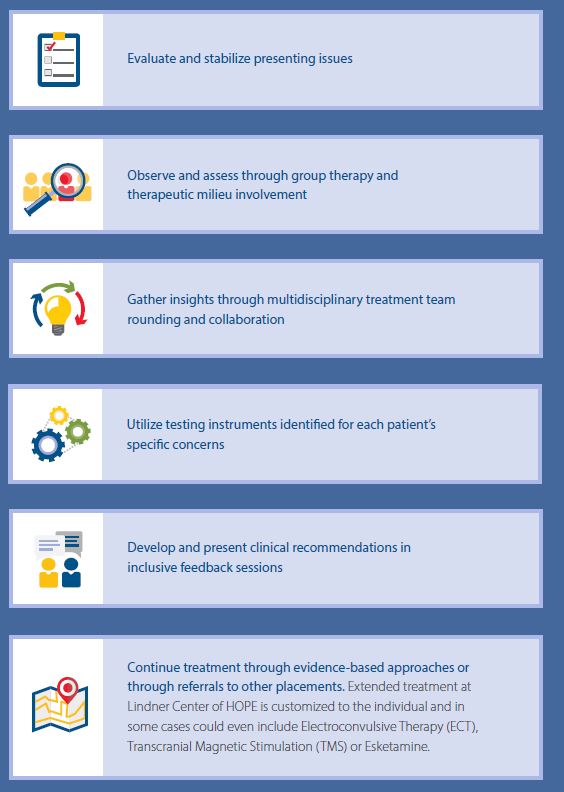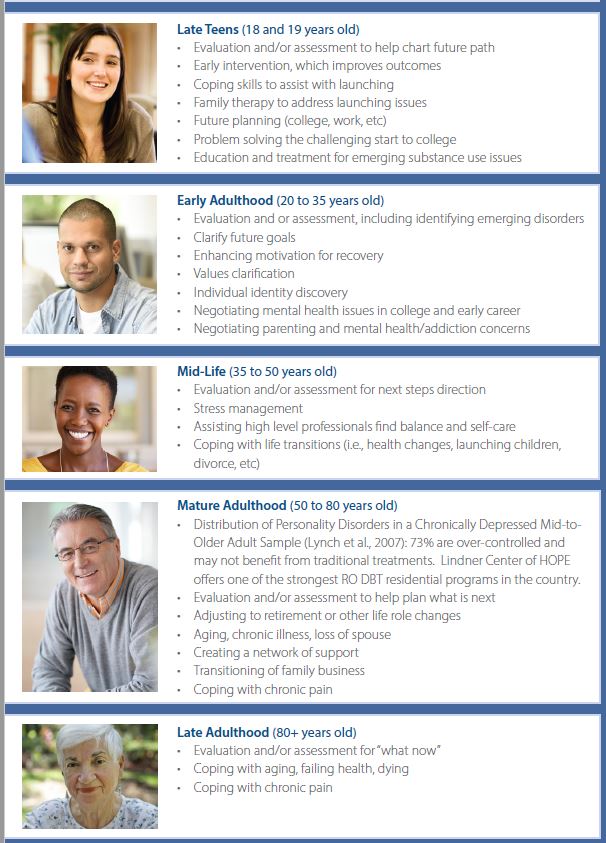Transforming Patient Care:
A Deeper and Wider Approach
Virtually all psychiatric disorders co-occur with other mental health conditions, medical issues and addictions. With this knowledge it has been noted that patient populations now reflect complex comorbidity rather than just dual diagnosis or co-occurring. Put simply, patients consistently exhibit three or more significant challenges to their well-being. Lindner Center of HOPE’s premier adult assessment and residential services acknowledge the importance of identifying complex comorbidity in order to improve patient outcomes. In fact, evaluation and assessment is vital in determining next steps treatment of complex comorbidity.
Lindner Center of HOPE addresses all phases.
Lindner Center of HOPE’s residential offerings offer an individualized path to answers that patients, families and referral sources are seeking. Between our two adult units we can:
Transforming the DNA of the Clinical Team
The faces of mental health assessment and treatment are the ones responsible for the outcomes and successes. The impressive team of mental health professionals at Lindner Center of HOPE are full time, on-site and highly credentialed in a variety of subspecialties. This transforms the nature of clinical teamwork as MD’s and psychologists work side by side on a daily basis to share timely and critical patient information. This is the core of our DNA.
Patients often comment that their clinical team was “smart and kind.”
Lindner Center of HOPE clinicians are at the top of their game, but often it is our heart-felt (Midwest) approach that makes the difference. This is part of our DNA, as well, … where the brain trust meets the heart of the matter.
Subspecialties
- OCD/Anxiety
- Addictive Disorders
- Thought Disorders
- Eating Disorders
- Depression and Bipolar Disorders


